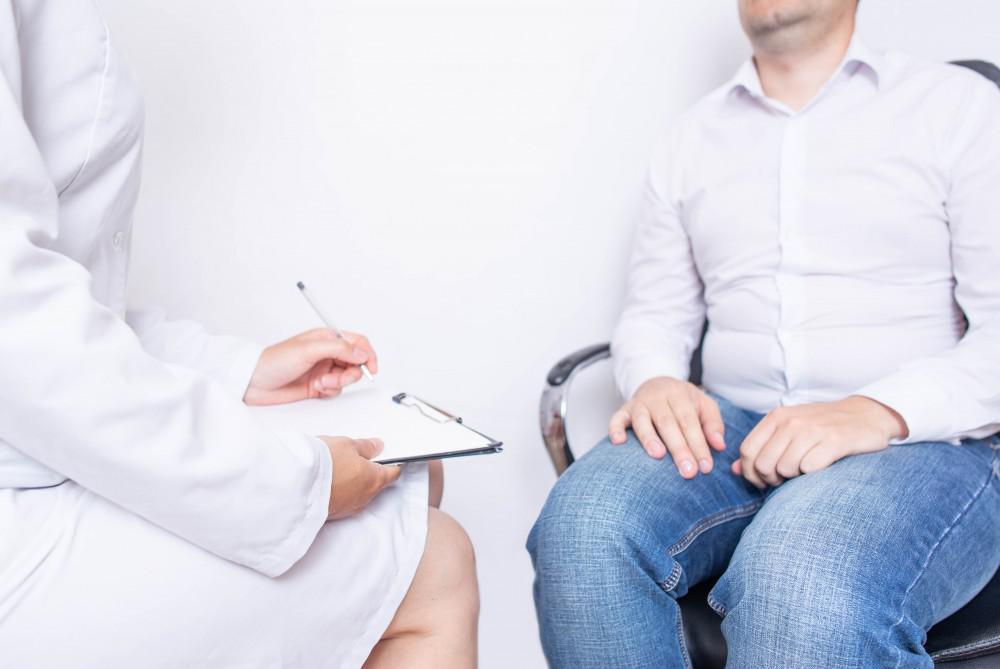What Is Colon Cancer?
Colon cancer is a malignant growth that begins in the large intestine (colon).
It occurs when cells in the colon lining grow out of control, forming tumors.
Early detection through screening greatly improves treatment outcomes.
Common Causes and Risk Factors
- Age over 50
- A family history of colon cancer or colon polyps
- Inflammatory bowel disease (Crohn's disease or ulcerative colitis)
- A diet high in fat and low in fiber
- Lack of regular physical activity
- Obesity
- Smoking or heavy alcohol use
Signs and Symptoms
- Changes in bowel habits (diarrhea, constipation, or narrowing of stool)
- Blood in the stool or very dark, tarry stools
- Persistent abdominal cramps, bloating, or gas
- Unexplained fatigue or weakness
- Unintended weight loss
- A feeling that the bowel doesn't empty completely
How Dr. Rishi Diagnoses Colon Cancer?
Dr. Rishi uses a step-by-step approach:
Medical History and Exam
He reviews your personal and family history of colon cancer or polyps, symptoms, diet, and other risk factors.
Colonoscopy and Biopsy
A camera inspects the entire colon lining; suspicious polyps are removed and sent for pathological analysis.
Blood Tests
We measure tumor markers such as carcinoembryonic antigen (CEA) and assess overall blood counts and organ function.
Imaging Studies
- CT scan or MRI evaluates the abdomen and pelvis for tumor extent and lymph node involvement.
- Endoscopic ultrasound can stage rectal cancers by measuring depth of invasion.
Genetic and Molecular Testing (if needed)
Tests for hereditary syndromes (e.g., Lynch syndrome) or molecular markers to personalize therapy and screening for family members.
Frequently Asked Questions
What are the first signs of colon cancer?
Changes in bowel habits (diarrhea or constipation) and blood in the stool are often the earliest warning signs.
How is stage 4 colon cancer treated?
Treatment may include systemic chemotherapy, targeted therapies, immunotherapy, and surgery to remove metastases when feasible.
What is the colon cancer survival rate?
Survival rates vary by stage. Early detection (stage I) has a 90%+ five-year survival, while later stages are lower. Your outlook depends on individual factors.
How often should I get a colonoscopy?
For average risk, begin at age 45-50 and repeat every 10 years. High-risk individuals may need more frequent exams.
Can diet really help prevent colon cancer?
Yes. A high-fiber diet rich in fruits, vegetables, and whole grains and limiting red and processed meats can lower your risk.
Are symptoms different for women?
Women may overlook bloating, fatigue, or pelvic discomfort. Pay attention to any persistent gastrointestinal changes.
What tests help detect colon cancer early?
Colonoscopy is the gold standard. FIT/stool DNA tests, CT colonography, and blood markers like CEA also assist in early detection.
Is it smart to get a second opinion?
Absolutely. A second opinion can confirm your diagnosis and treatment plan. Dr. Chadha welcomes collaboration with your care team.
How long does it take to recover from minimally invasive surgery?
Most patients resume normal activities within 2-4 weeks after laparoscopic or robotic-assisted colectomy.
When should I get screened if I have a family history?
Begin screening 10 years before the age at diagnosis of your youngest affected relative, or by age 40, whichever comes first.











